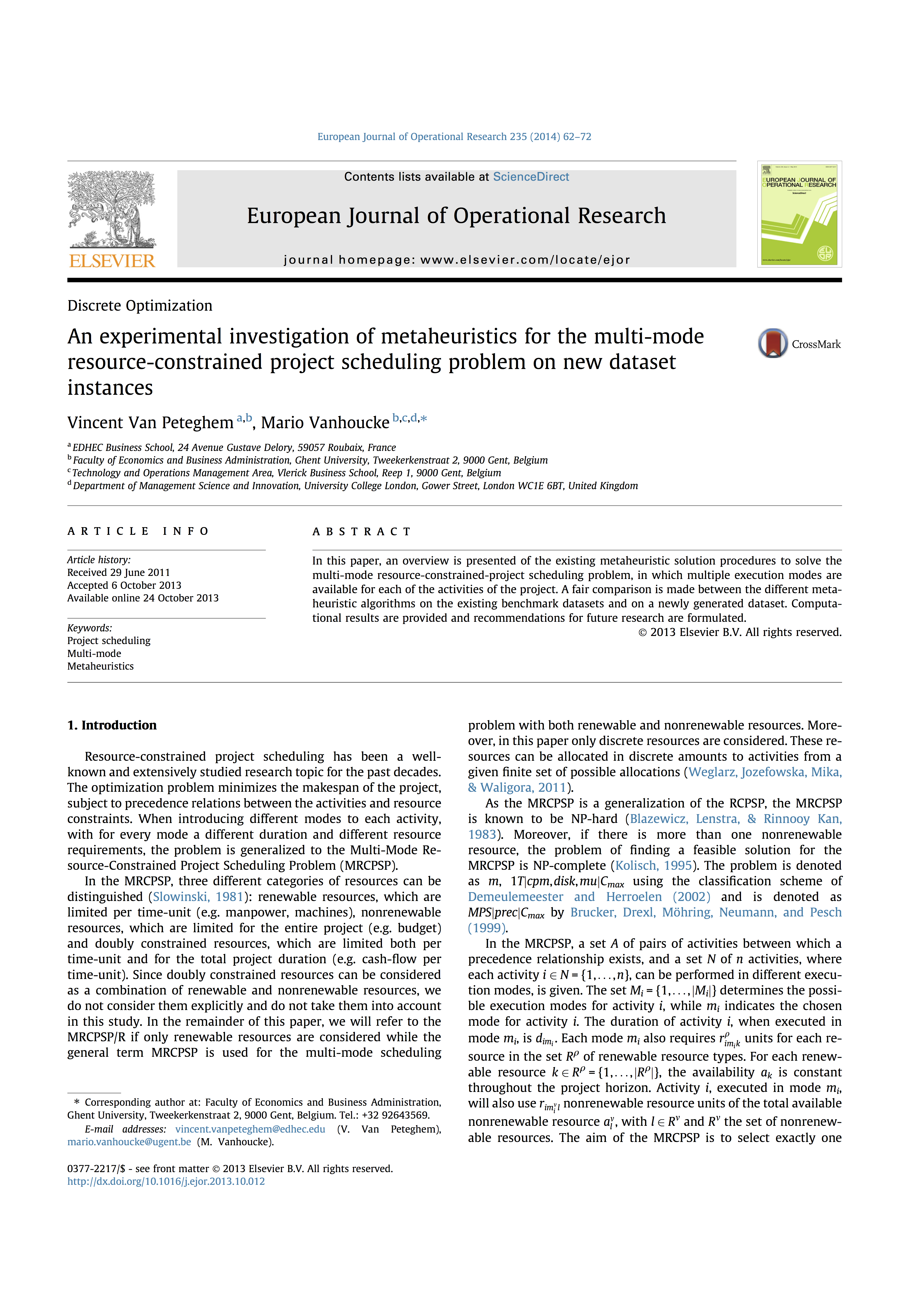New publication: Benchmarking algorithms
New publication: Benchmarking algorithms
Message to researchers
The resource-constrained project scheduling problem with multiple modes (MRCPSP) is an extension of the well-known single-mode RCPSP and involves the selection of a time/resource combination for each activity such that the total project duration is minimized. A time/resource combination can be represented as a fixed work content (e.g. a work content of 12 mandays can be scheduled as 4 days with 3 people, or 3 days with 4 people, or any other combination that equals the duration x resource demand = work content) or by any extension on this model. In the MRCPSP, each activity combination has a duration and a resource demand that does not necessarily leads to a fixed work content. The problem is very hard to solve (it is so-called NP hard) and various algorithms have been presented in the literature. The OR&S group has done a lot of work on this problem and has presented state-of-the-art results using various algorithms. And now, only recently, we have added a new publication that might be helpful to a lot of researchers in the MRCPSP field.
Benchmark your solutions!
As a researcher, it is crucial to be able to test the newly developed algorithm on standard project data and to validate and benchmark the solutions in a fair and standardized way.
Researchers who wish to compare their solution procedures with the state-of-the-art solution procedures from literature can now rely on the benchmark solutions and data instances published in the European Journal of Operational Research entitled as "An Experimental Investigation of Meta-heuristics for the Multi-mode Resource-Constrained Project Scheduling on new Dataset Instances". In this paper, an overview is presented of the existing metaheuristic solution procedures to solve the multi-mode resource-constrained-project scheduling problem, in which multiple execution modes are available for each of the activities of the project. A fair comparison is made between the different metaheuristic algorithms on the existing benchmark datasets and on a newly generated dataset. Computational results are provided and recommendations for future research are formulated.
The paper can be downloaded from the website of the publisher and more information can be found at the OR&S webpage.
Interested?
If you should be interested to join our OR&S group, download the vacancy here.

